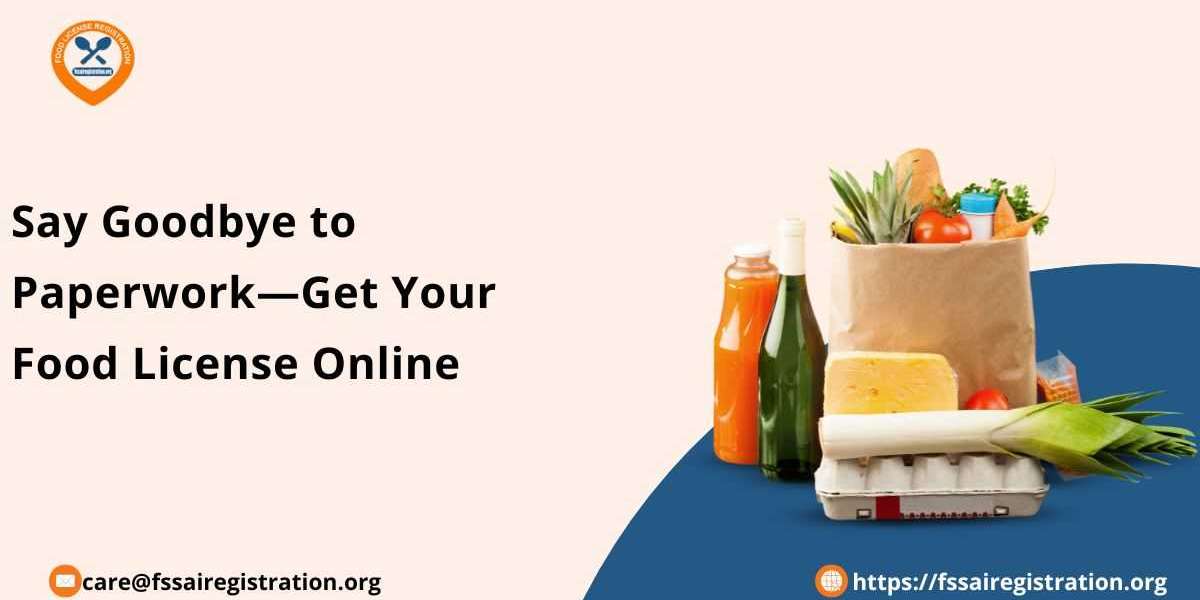In today's fast-paced digital world, traditional bureaucratic procedures are gradually being replaced by more efficient, technology-driven solutions. Among the most notable transformations is the shift to online licensing for food businesses. In India and many parts of the world, obtaining a food license online has become not just a convenience but a necessity. This article explores how the digitalization of food business licensing is shaping the modern food industry, its benefits, challenges, and what it means for entrepreneurs, startups, and established businesses.
What is a Food License?
A food license is a legal document that permits an individual or business to manufacture, distribute, or sell food. In India, the Food Safety and Standards Authority of India (FSSAI) is the apex body responsible for issuing food licenses. Depending on the size and nature of the business, the FSSAI issues three types of licenses: Basic Registration, State License, and Central License.
Why is a Food License Necessary?
A food license ensures that the food served or sold to consumers adheres to safety and hygiene standards. It protects public health, builds customer trust, and is a legal requirement for running any food-related business. Non-compliance can lead to penalties, business closure, or legal action.
The Shift to Online Licensing
Previously, acquiring a food license involved visiting government offices, submitting piles of documents, and enduring long waiting periods. The introduction of the online application process has revolutionized this experience. Today, businesses can apply, track, and receive their food licenses from the comfort of their offices or homes.
Benefits of Applying for a Food License Online
- Convenience and Accessibility: Entrepreneurs can access the licensing portal 24/7, eliminating the need to visit regulatory offices.
- Time-Saving: Digital submissions drastically reduce processing time.
- Transparency: Applicants can track the status of their application online.
- Error Reduction: Online forms often come with tooltips and validations that minimize errors.
- Eco-Friendly: Reducing paper usage contributes to environmental sustainability.
How to Apply for a Food License Online in India
- Visit Website – Open the official FSSAI registration portal.
- Fill Application Form – Enter your name, business details, and food category, and upload your PAN card.
- Review Submit – Check all details and submit the form.
- Pay Fee – Complete the payment online as per your license type.
- Verify OTP – Enter the OTP sent to your registered mobile or email.
- Inspection (If Required) – Officials may inspect your premises for approval.
- Get an FSSAI License – Once approved, download your FSSAI license from the website.
Documents Required for Online Food License Application
- Identity proof (Aadhaar, PAN, etc.)
- Address proof of business premises
- Business constitution certificate (e.g., Partnership Deed, MOA, AOA)
- List of food products
- Passport-size photographs
- Proof of possession of premises
- NOC from the municipality or local body (if applicable)
Challenges in the Online Food Licensing Process
While digitalization has many advantages, certain challenges remain:
- Digital Literacy: Not all entrepreneurs are tech-savvy.
- Internet Connectivity: Rural areas may lack reliable internet access.
- Technical Glitches: Government portals may occasionally experience downtimes.
- Document Upload Issues: File size and format restrictions can be confusing.
- Lack of Awareness: Many small businesses are still unaware of online licensing options.
Overcoming These Challenges
To ensure smooth online food licensing, stakeholders must:
- Conduct awareness programs and workshops
- Simplify the portal's user interface
- Provide multi-language support
- Offer helpline support and live chat
- Collaborate with local authorities to assist applicants
Impact of Online Food Licensing on the Industry
- Startups and Home-Based Businesses: With easier access to licensing, more foodpreneurs are emerging, especially women entrepreneurs.
- Transparency and Accountability: Digital records ensure better tracking and reduced corruption.
- Improved Compliance: Notifications and reminders help businesses renew licenses on time.
- Enhanced Food Safety: A digitized system allows for quicker inspections and responses.
Future of Food Licensing
- AI and Automation: Predictive analysis and automated verifications may become standard.
- Blockchain Integration: Ensuring secure and tamper-proof food licensing records.
- Mobile App Integration: Applying and tracking through apps for better accessibility.
- Global Interoperability: Licensing systems may eventually integrate across borders for exporters and importers.
Note:- Now you can easily Renewal food license
Conclusion
Food License Online is undeniably the new norm in food business licensing. It represents a significant step towards digital governance, transparency, and inclusive entrepreneurship. Making food licensing more accessible, efficient, and user-friendly, it empowers food businesses of all sizes to operate legally and safely. As technology continues to evolve, the licensing process will only become more streamlined, paving the way for a more robust and compliant food industry.



